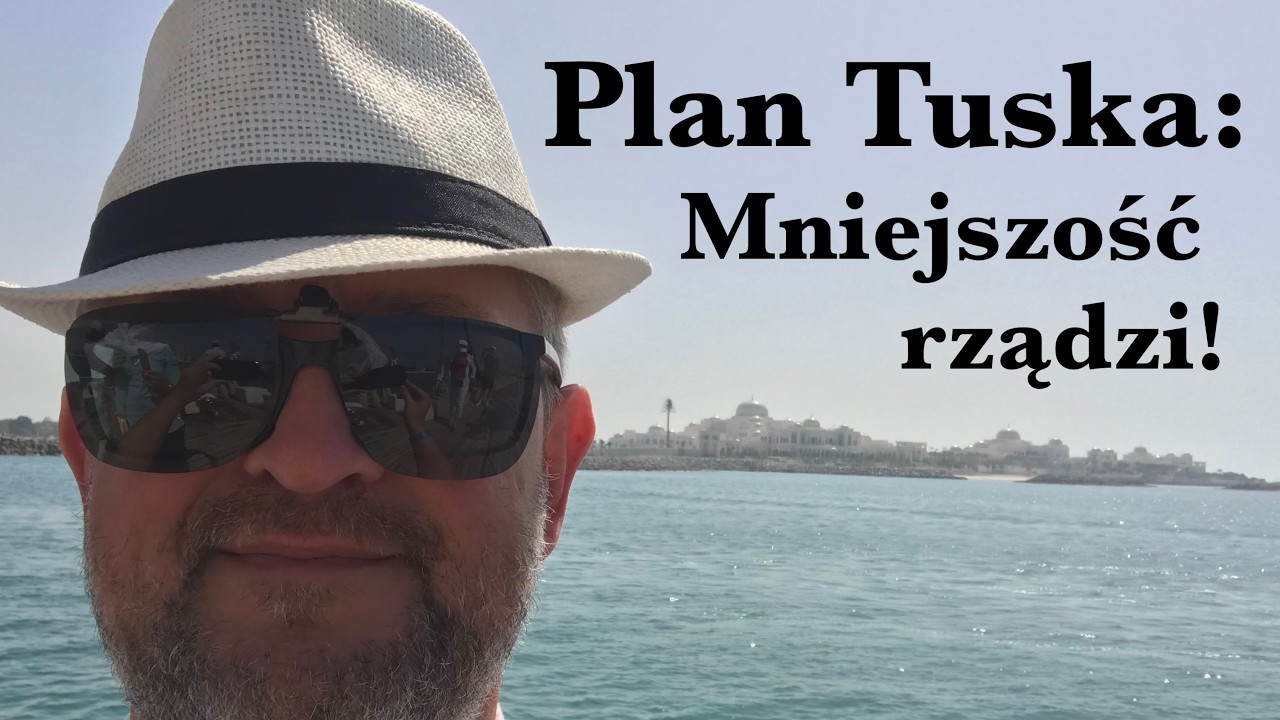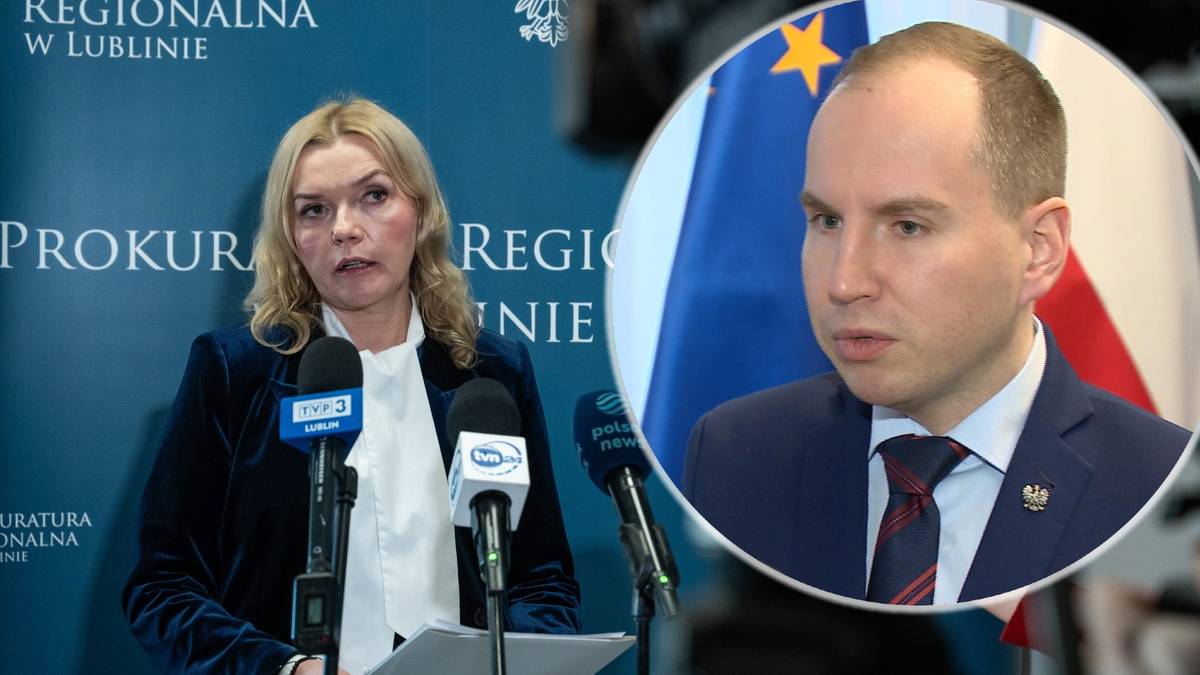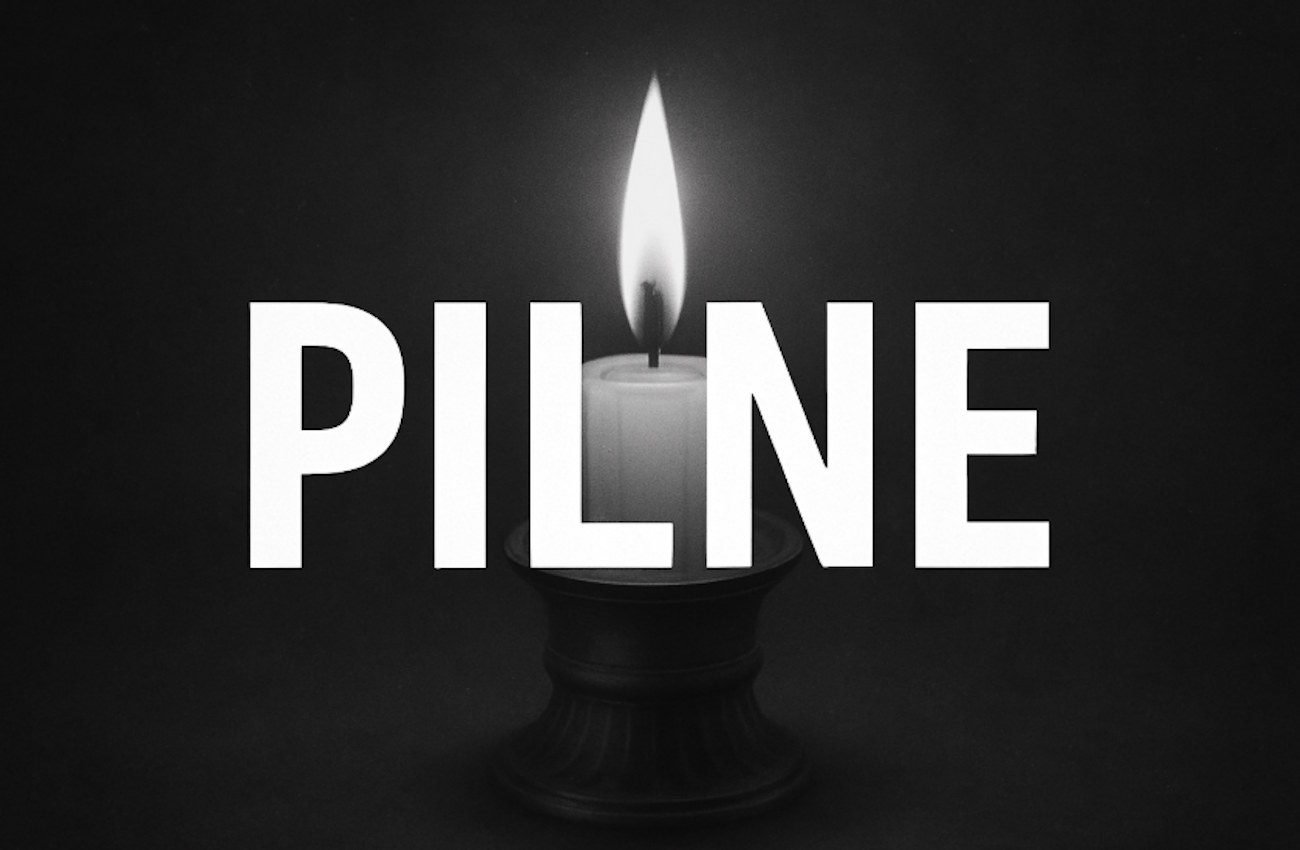Dr. Henryk Bochniarz and I are discussing whether employers and employees must be hostile to each other, whether we have any thought what social dialog is, and whether people request to be taught cooperation from an early age.

Henry Bochniarz
An economist and a businesswoman. According to various rankings, she is 1 of the most influential women in Poland. president of the Leviathan Confederation's Main Council. In 1991, she was Minister of manufacture and Trade in the government of Jan Krzysztof Bielecki. From 1999 to 2019, she served as president of the employers' organization Confederation of Leviathan. She co-founds the Women's Congress. She was on the board of directors of many companies. She ran for president of the Republic of Poland in the 2005 election. From 2006 to 2014, she was Vice president of the Board of Boeing global for Central and east Europe. She has been seeking more participation of women in the management of Polish companies for years.
(Interview is simply a edited and completed version of the podcast Are you aware? p. Bochniarz: How to increase worker engagement in the company).
Rafał Górski: Why do we request worker advice?
Henry Bochniarz: We're celebrating our 25th anniversary in Leviathan, and we're doing a summary. Since the beginning of our activities, we have believed that the issue of dialog with trade unions, due to the fact that at the time we mostly talked about them, should be an crucial part of our work.
Initially, our name was – the Confederation of Private Employers, and I must admit that there were situations erstwhile the owners of companies initially noted: there would be no trade unions. I think it was a scheda after the erstwhile system, erstwhile private company owners thought that any representation of employees could only disturb them and only bother them.
One of the first business visits, as a typical of Leviathan, was conducted at the invitation of the National Commission of the NSZZ “Solidarity” in Gdańsk. Later, 1 of the leaders of Polish business wrote an open letter that I destruct the movement of employers by establishing a relation with trade unions. However, at the time I thought, and all the more so present I think that it is impossible to talk about a modern enterprise or a modern institution without genuine dialogue. It's just impossible.
The trade unions initially opposed the formation of worker councils due to the fact that they thought it would be a threat to them. In my opinion, there is space for any and for others. And we as entrepreneurs should look for various forms of conversation.
As a consequence of the Covid pandemic, fresh forms of work have been created, especially distant work – for example, in Leviathan most workers come to the office erstwhile a week. There are many companies with specified a model of work and there will be even more of them, so the anticipation of talking to worker representation is highly important. These representatives must be elected in a democratic way so that no self-proclaimed leaders can appear who will make unsuccessful proposals without having any thought what's truly going on in the company.
Ms Zbigniew Romaszewski stressed many years ago: "Employee councils are part of civilian society and I think they are a very crucial element".
Senator Krzysztof Kwiatkowski says likewise today: “Workers' councils are a unique tool that makes workers delicate to reasoning in terms of the common good. For each of us, our companies and workplaces are crucial places where we would like to have the best working relation and a sense of participation in decisions straight concerning us."
Quoted senators come from fighting political environments, but their views on worker councils are consistent. How do you comment?
I think that all individual who deals with the economy not only theoretically must come to specified a logical conclusion: deficiency of dialogue, exchange of information, co-responsibility usually ends poorly for the company.
In times where we live, the worker has little and little contact with the employer, frequently working remotely. She frequently doesn't know what's going on in the company, she has no sense of influence on the direction of her business, she doesn't know her financial situation, she doesn't know the functioning of the pay system. Under specified conditions, workers may feel highly insecure, and yet 1 of the absolutely basic needs of man is the request to decide about himself. An worker must have employment conditions that let him to anticipate: can I take credit? Can I afford a baby? It is hard to make specified decisions if you do not know whether the work is unchangeable or whether we will be able to implement our plans.
If no 1 brings the worker into what the present and future of the company is, it is hard to build any loyalty.
And then we're amazed that people change businesses due to the fact that they're not connected in a intellectual or emotional way. They only treat the workplace as a place to make money.
In an interview with Gazeta Wyborcza entitled “Etatów will not be” you note: “Employee councils should besides be established. Business frequently thinks of patterns – that trade unions know how they work, and there will be only problems with them. There may be...So much that dialog makes the company better managed. The full Western civilization so holds well that it can give itself up to constant criticism. And so is companies. These built like a feudal farm can have large results briefly and then fall.”
Please explain what social dialog looks like in Polish companies?
When we assumed Leviathan, Poland was already in the process of accession to the European Union, so we looked at the organization order in EU countries. The issue of social dialog was absolutely 1 of the essential [The Parties to social dialog are the social partners, namely employers and their organisations and employees, represented primarily by trade unions. In certain cases, dialog requires the engagement of the State, as a partner of dialogue, as an inspirer or guarantor, ed.]
In most mature democracy, dialog has always been bilateral, between employers and worker representation. In Poland we have a trilateral dialogue, i.e. the government, trade unions and employers talk. This is due to the fact that we practically do not have collective labour agreements
[In collective labour agreements, workers represented by trade unions and employers may agree on working conditions another than in statutory regulations – ed.]
W The Leviathans recognized from the beginning that we should build social dialog and became members of the Tripartite Commission [Tripartite Committee on Social and economical Affairs, briefly called the Tripartite Commission, was the organisational backbone of social dialog in Poland. She was appointed to life in 1994 by a resolution of the government – ed.] We were active erstwhile the bill setting up the Social dialog Council [the Social dialog Council (RDS) replaced the Tripartite Commission, which had been operating since 1994, ed.].
I believe that RDS is simply a very crucial part of civilian dialogue, but we should besides look for another forms. In addition to trade unions and employers, the European economical and Social Committee besides has representatives of civilian society institutions [the European economical and Social Committee (EESC) is an advisory body of the EU, representing workers' and employers' organisations and another interest groups, ed.] In our Social dialog Council, we theoretically have a representation of the 3rd sector, but civic panels or public hearings are inactive unusual, but in mature democracies they are basic forms of communication with the public [citizen panel is simply a democratic process in which decisions are made by a randomly elected, typical group of citizens and citizens. The public hearing, on the another hand, is that citizens and citizens have the chance to express their opinion publically erstwhile creating rights.
After 25 years of Leviathan's existence, I note that the rulers do not care about communication with employees and employers. The only exception was the time erstwhile the Minister of Economy and Labour, as well as Deputy Prime Minister, was prof. Hausner [2003-2005 – ed.]. We, employers and trade unions, felt that we were being taken seriously. These were not virtual meetings, which had to be checked out, but actual dialog with us, our proposals were taken into account. Attempts of open dialog were made by Władysław Kosiniak-Kamysz erstwhile he was Minister of Labour and Social Policy [2011-2015 – ed]. But then regardless of the environment governments came from, dialog was usually completely apparent. Meetings were held, but decisions were taken in isolation from the opinions of the Social dialog Council.
During the financial crisis in 2008, we were a unique country in which a social pact between trade unions and employers was concluded. Actions that will or will not be taken if Poland besides touches the financial crisis have been scored. The arrangements involved, for example, blocking the minimum wage and were to guarantee that we were able to go through the crisis without major losses. We were fortunate due to the fact that we became a green island, and we did not gotta implement these fixed points, but this pact proved real dialogue.
Over time, dialog has become completely fictional and serves nothing. This was due to the government's reluctance to talk, as well as through political commitment, for example, to "Solidarity" in just 1 political party.
We are presently watching what the discussion looks like on the minimum wage. The establishment of a position on minimum wage should be the consequence of a compromise between unions and employers, while the unions say 1 thing, the employer says the other, and the government makes 2 proposals. I wonder where this will end, but it will surely not be the consequence of an authentic dialog between all these social partners.
In 2006, the Act on informing and consulting employees was passed. Unfortunately, it is simply a dead bill. How can we convince employers not to treat the advice of employees as an opponent, competition or a 5th wheel of a car, but as an institution that can strengthen the company and its competitiveness in the market?
W Leviathans have late done investigation on whether society understands what social dialog is. It turned out that a fewer twelve percent had no thought what specified dialog was at all, and that the notion of different failed definitions was based on it.
I think we request to start with public education. In primary school, emphasis should be placed on all forms of cooperation, no substance how far. There utilized to be a collection of waste paper, now it's not done, but it's possible to advance another volunteer activities that show that cooperation is beneficial. We request to approach social dialog in an authentic way, show good practices, teach how to talk, how to search compromises. The statutory records are frequently subject to various penalties for non-compliance. I believe that encouraging and rewarding works better in raising children than punishing them, and the same applies to raising society. Of course, there will be no immediate effects, but people request to be taught to cooperate from an early age to believe that it makes sense.
I live in a village close Olsztyn and I see that you can take joint action and fight together for certain things, provided that you have a sense of common interest and at the same time you realize that not only our individual interest is important, but that you besides gotta consider all the conditions. It seems to me that we are inactive highly far from specified absolute foundations of social dialogue. We request to know these grounds so that we can later dress them in sensible and mostly accepted legal records. The civilian Affairs Institute and we, the employers of Leviathan, have a lot to do. We request to show people that an emotional approach is harmful. We must act rationally and search compromises, due to the fact that this translates into better action, better governance, better company performance. It just pays off.
Studies say that among workers there is simply a increasing concern about alleged technological unemployment. We're afraid of automation, artificial intelligence, robot displacement. Can social dialog be built, a common position developed on the threat of technological unemployment?
There are many studies that show that fresh technologies can make fresh jobs. I am fascinated by these possibilities. I think there's quite a few fear coming from ignorance and we're back on the subject of public education. It is crucial to show what opportunities technology offers us, how it importantly reduces the time of investigation to different discoveries. present specified a real exclusion is simply a digital exclusion. It primarily affects the elderly, to whom this technological advancement could make life easier. I've always lacked time and determination to learn coding, and right now I don't request to know the language of coding to usage artificial intelligence, fresh applications. Of course, people like stableness and predictability, but since there is no longer any way to escape certain processes, you gotta think about how to find yourself in this fresh environment.
I do not see from the government or non-governmental institutions specified tamement of people with the problem of fresh technologies. It would be better to look at technological advancement as an chance alternatively than a threat.
Some people will gotta reclassify, but if they know what alternatives they have, it will be easier for them to accept. Threatening technology will origin opposition in society, which will later be hard to reverse. Later, a double occupation will should be done to get people to think positively about fresh solutions.
The European Union imposes on more and more companies the work to study to the ESG (Environmental, Social, Government). [ESG reporting is simply a process of collecting, analysing and publishing information about the company's activities in 3 areas: the environment, social work and corporate governance. specified a study shall show how the activities of the undertaking affect the environment and how sustainable improvement objectives – ed.] How will this regulation affect the improvement of social dialog in Polish companies?
I represent employers and I can be seen stereotypically as a individual without knowing people, but I personally reject extraliberal theories. Leviathan, too, did not focus only on the tables in Excel, but we always paid attention to equality, responsibility, transparency and respect for the environment.
The European Union is simply a hell of a bureaucratic institution, all of which must be included in the directive. However, we must be careful not to go besides far so that the implementation of the EU directives does not end in volumes of reports and forcing the bosses to force certain things. Again, alternatively of forcing, it's better to educate. We must show people what the affirmative effects of the directives are, explain that certain changes will besides translate into the quality of their lives. erstwhile we talk about the carbon footprint, we should rise awareness of how crucial it is that we can function in an environment where air is not poisonous.
What crucial question has no 1 always asked you about the subject we are talking about, and what is the answer to them?
We should look for answers to the question: what to do to guarantee that good initiatives, specified as worker advice, are seen as something to aid us, not as another order to implement.
I would like us to return to those ideas of solidarity which have led to specified extremist changes in Poland. Let us remember this, we have plenty of examples that there have been compromises in our country erstwhile there was will and determination. We should trust on these examples alternatively of saying that we are divided and each has its own business. I believe that we can talk to each another and look for solutions. I'm inactive optimistic about it.
Thank you for talking to me.
















